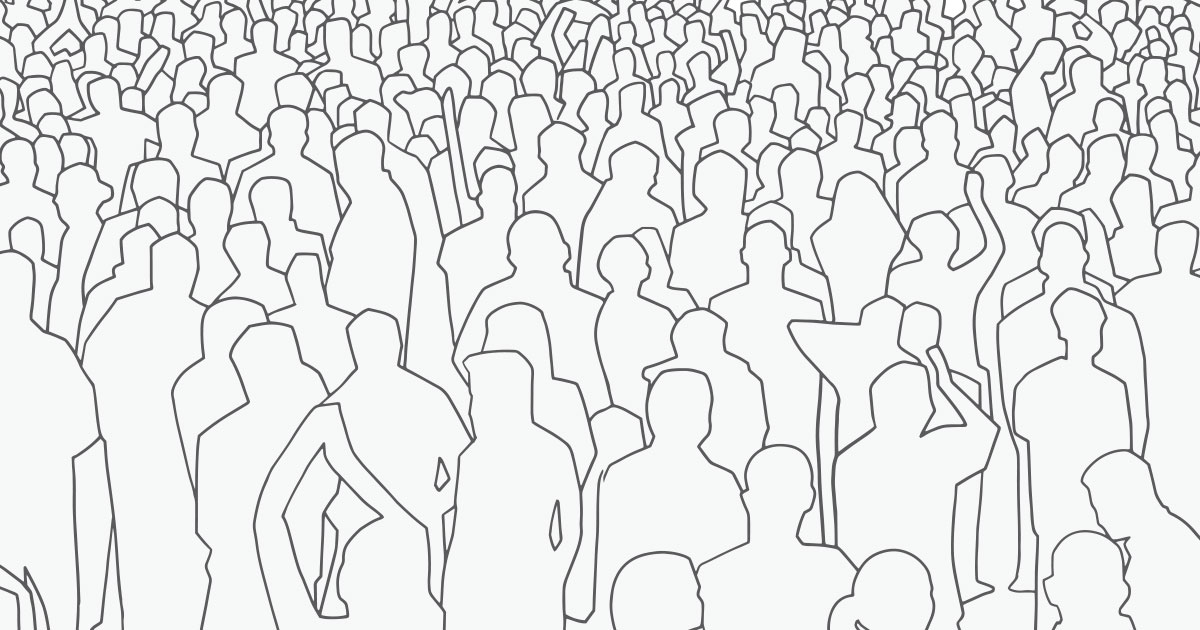Who is going to harm you if you are eager to do good? ~1 Peter 3:13
You’re shopping alone in a crowded grocery store, and suddenly you spot a small child who appears to be lost and wandering for its parents. Do you take the active role, take the child by the hand and help find the parents? Or do you continue with your shopping while thinking, “Hopefully, the parents will find their missing child,” or “There’s a lot of people here, maybe someone else will help find the parents.” If you tend to only look at a seemingly urgent situation, thinking that someone else will assume responsibility and act, you may suffer with the bystander effect.
WHAT IS THE ‘BYSTANDER EFFECT?”
This is a social phenomenon that occurs when the more people that are present during a crisis, the less likely any of the people will help the distressed victim. When a desperate situation breaks out in public—someone becoming dehydrated and feeling faint, a small child in pain, a blind person who is lost—we quickly put the hope in others to help that person. Sadly, it has become a social norm to only look at situations because we just don’t consider being that radical hero to save the victim’s day. It just doesn’t seem like something that the “cool kids” do. This happens mainly when the situation takes place in the presence of a large crowd. The enclosing crowd puts less pressure on individuals to take responsibility and help.
“AWWW… WELL, SOMEONE ELSE CAN ALWAYS HELP…”
Many reasons encircle a person’s head as to why they “cannot” or “shouldn’t” help the victim. The first reason is the “diffusion of responsibility,” which happens when people are less likely to act when in the presence of a large crowd of people. In situations like these, the lack of urgency that we reads on onlookers’ faces and their body language makes us think the situation is not that serious, making us guilty of being a bystander. Even if we think about helping the victim, we may think that we don’t have the resources to help.
Social norms are another reason that the bystander effect occurs. When a crisis breaks out in public, sadly, people only stand and watch. It’s like driving past a car accident and slowing down traffic because everyone wants to see what happened and if the person is alive. But most drivers just keep pushing forward along their route and don’t stop by to help. In today’s culture, crises are a subject for social media entertainment. This should not be the case because it desensitizes people to others’ misfortunes and strips their desire to help and rectify the situation.
WHAT IF IT WAS YOU?
One way of diminishing the bystander effect is to either remember a time where you were in desperate need of a stranger’s help or to imagine if you were in the victim’s place. Would you want someone to promptly stop in their tracks and show compassion and help you in dire need? Do you think your situation will worsen if everyone just passed you by without even making eye contact?
FINDING THE COURAGE TO CARE
I wanted to marry Biblical principles with my prescription to diminish the bystander effect:
- Love. When we have genuine, unshakeable love for others, we naturally show that love. We don’t just say, “I love you.” This love involves helping others in need, whether a friend, family member or stranger. We are required to love in action. We must also be watchful and be courageous enough to stand out from the crowd and be the radical helper the victim needs. If we don’t help, who else will? (1 John 3:18, 1 Corinthians 16:13-14)
- Responsibility. We are responsible for helping each other in our times of need. If we know the right thing to do and still don’t do it, we fall guilty of being a bystander. We must not get tired of doing good. (Galatians 6:9-10)
- Nonconformity. We should not worry about following the crowd. The broad way is the danger zone. (Romans 12:2)
Don’t fall into the trap of the bystander effect. The world has enough bystanders, but a shortage of radical helpers.






















